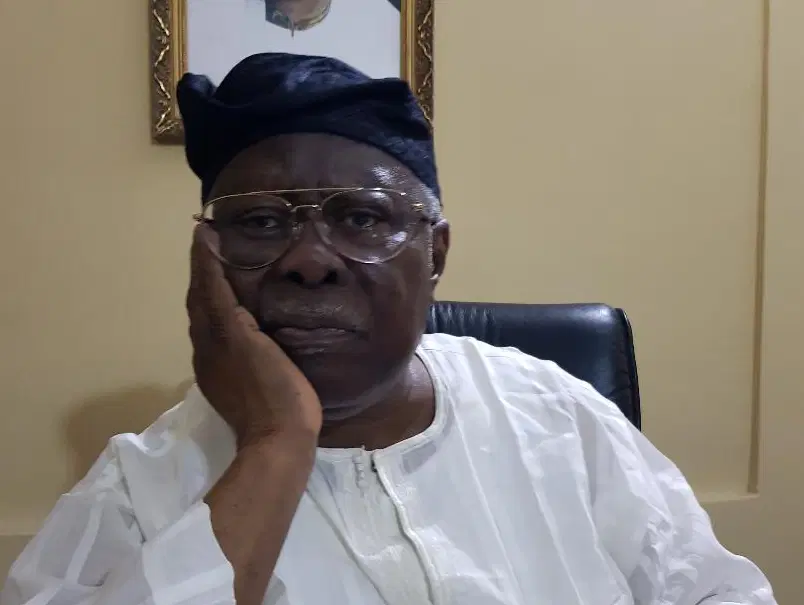In a recent revelation that sent shockwaves through Nigeria’s political landscape, former Deputy National Chairman of the Peoples Democratic Party (PDP), Bode George, made a bold statement regarding the party’s future presidential candidate selection. He firmly declared that the PDP would not nominate a Northerner for the presidency in the upcoming 2027 elections. This announcement sparked immediate discussions and debates across the nation, with many eagerly analyzing the potential implications and repercussions of such a significant decision.
Bode George’s assertion was not just a casual statement but a strategic move that carried profound historical and political weight. By highlighting the party’s stance against nominating a Northerner for the presidency, George aimed to honor the legacy and principles laid down by the PDP’s founding fathers. This decision was seen as a direct challenge to the prevailing norms and expectations within Nigeria’s political landscape, setting the stage for a potentially transformative shift in the country’s future leadership dynamics.
The prospect of the PDP breaking away from the traditional pattern of alternating presidential candidates between the North and the South captured the attention of political analysts and observers nationwide. This departure from the established rotational formula introduced a new element of unpredictability and excitement into the upcoming electoral race, prompting intense speculation about the potential candidates who could emerge as frontrunners in the PDP’s nomination process.
George’s statement not only reflected a strategic political maneuver but also signaled a broader shift in the party’s approach to presidential candidacy, challenging long-standing conventions and paving the way for a redefined political landscape.
As discussions around the PDP’s decision gained momentum, expert voices from various fields weighed in on the potential implications of this bold stance. Political analysts emphasized the significance of the party’s choice in shaping the narrative of the 2027 elections and its impact on the broader political climate in Nigeria. By breaking away from traditional patterns, the PDP positioned itself as a trailblazer in the quest for innovative and inclusive leadership strategies, setting a precedent that could redefine the dynamics of future electoral contests.
The implications of the PDP’s decision extended far beyond the realm of party politics, resonating with larger societal trends and aspirations for a more progressive and equitable political landscape. By signaling a departure from entrenched power structures and regional biases, the party’s stance sparked conversations about the importance of meritocracy, competence, and vision in selecting national leaders. This shift towards a more merit-based approach to presidential candidacy reflected a growing recognition of the need for transformative leadership that transcended regional considerations.
The PDP’s decision not to field a Northerner for the presidency in 2027 represented a pivotal moment in Nigeria’s political evolution, signaling a departure from traditional norms and a bold step towards a more inclusive and meritocratic leadership model.
As the debate surrounding the PDP’s announcement continued to unfold, it underscored the complexities and nuances of Nigeria’s political landscape, highlighting the intricate interplay between historical legacies, regional dynamics, and evolving societal expectations. The upcoming 2027 elections promised to be a watershed moment in the country’s democratic journey, with the PDP’s decision setting the stage for a transformative and potentially paradigm-shifting electoral contest.
In conclusion, Bode George’s statement regarding the PDP’s presidential candidate selection for the 2027 elections served as a catalyst for introspection and dialogue within Nigeria’s political sphere. By challenging established norms and advocating for a more progressive and merit-based approach to leadership, the party signaled its commitment to fostering a new era of inclusive governance and visionary leadership. The implications of this decision reverberated far beyond the confines of party politics, resonating with broader aspirations for a more equitable and forward-thinking political landscape in Nigeria.

